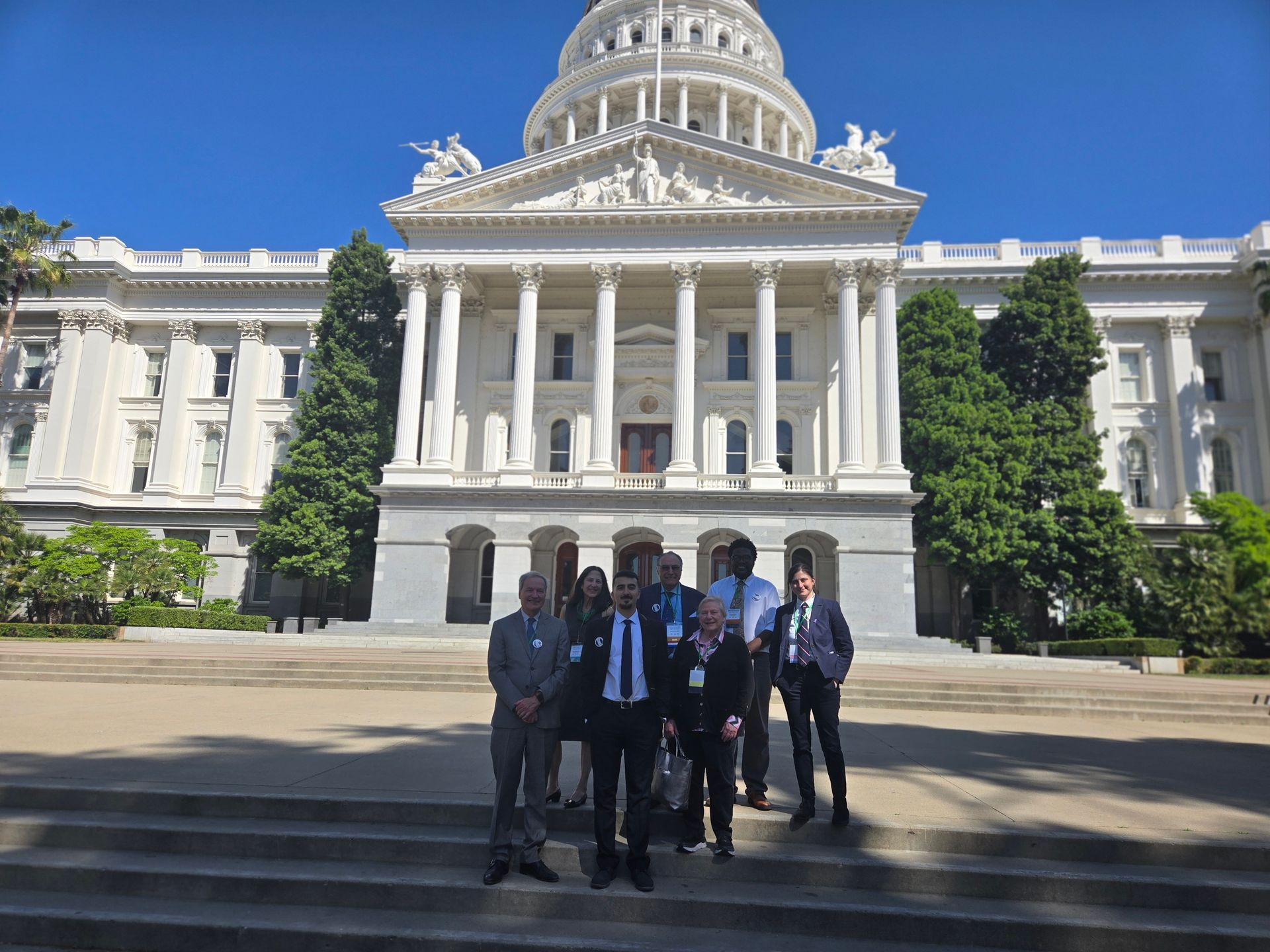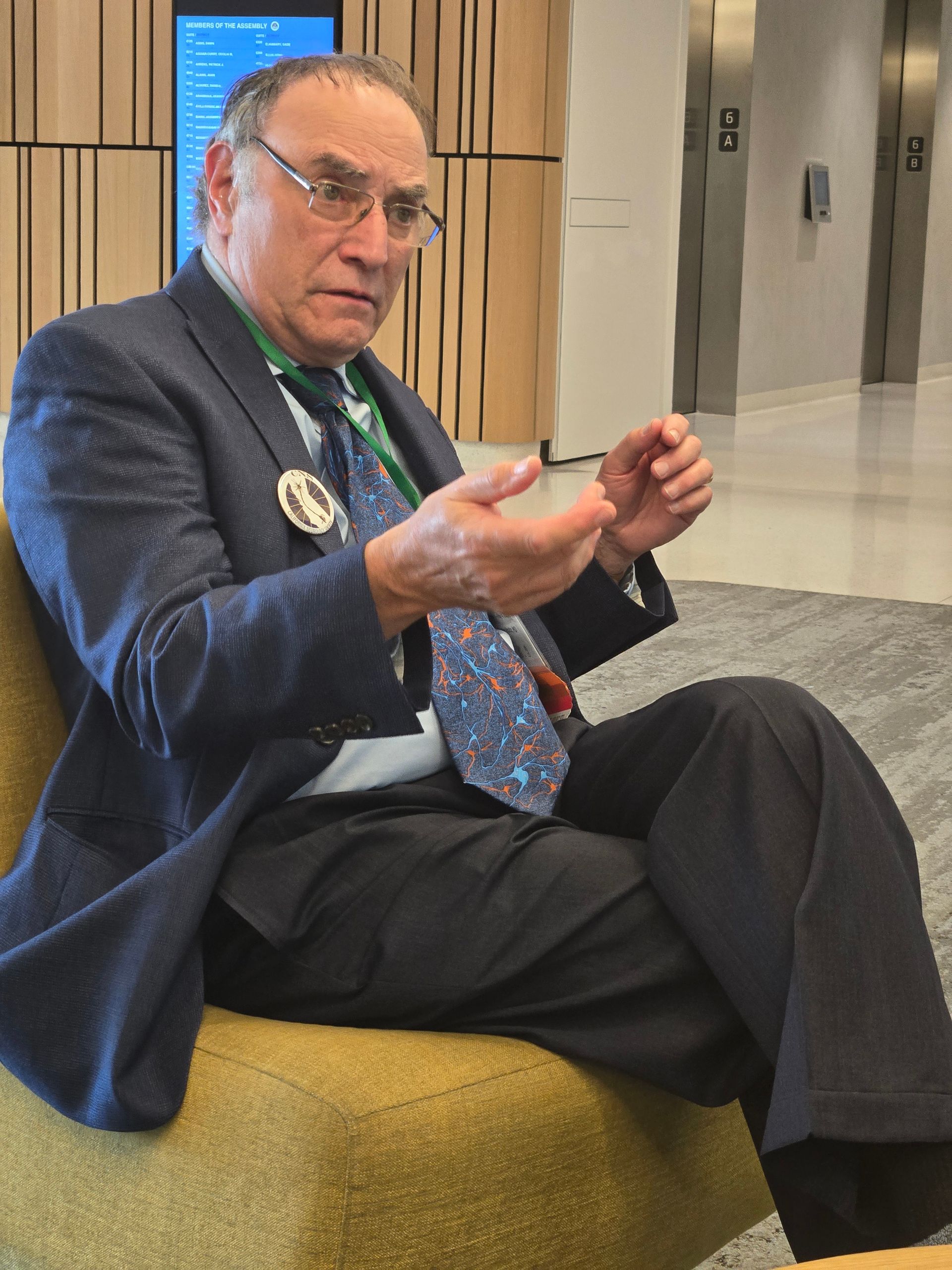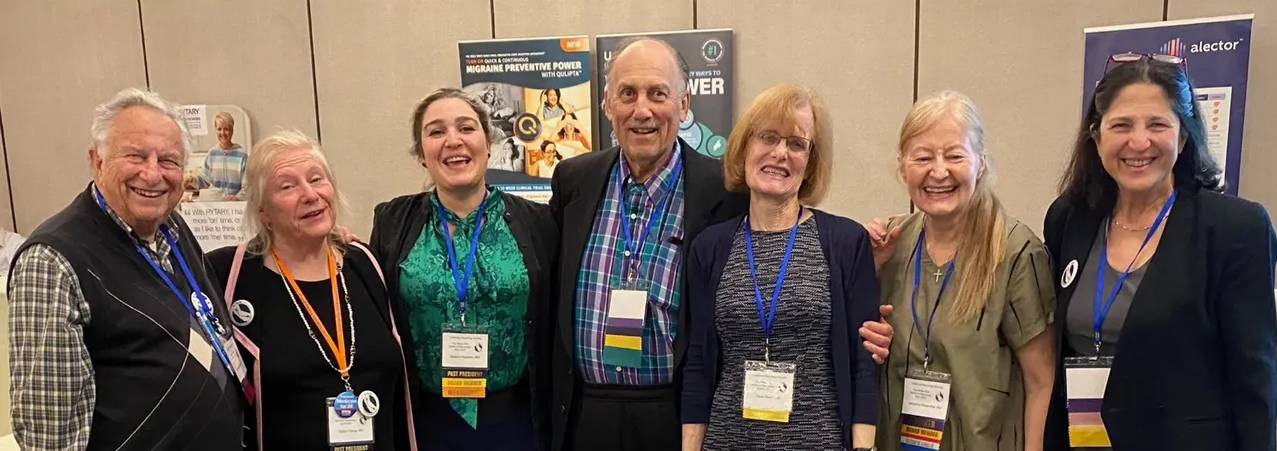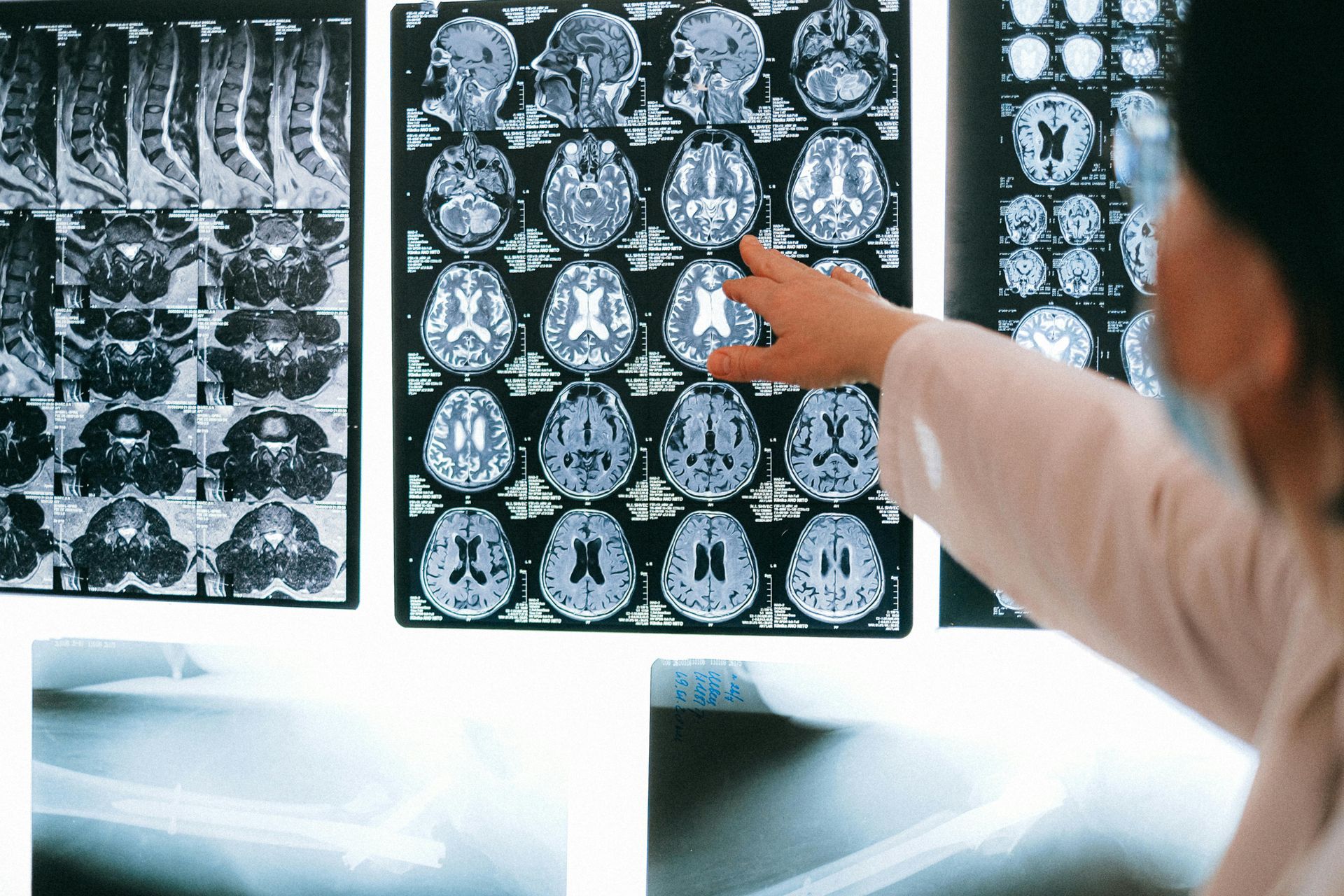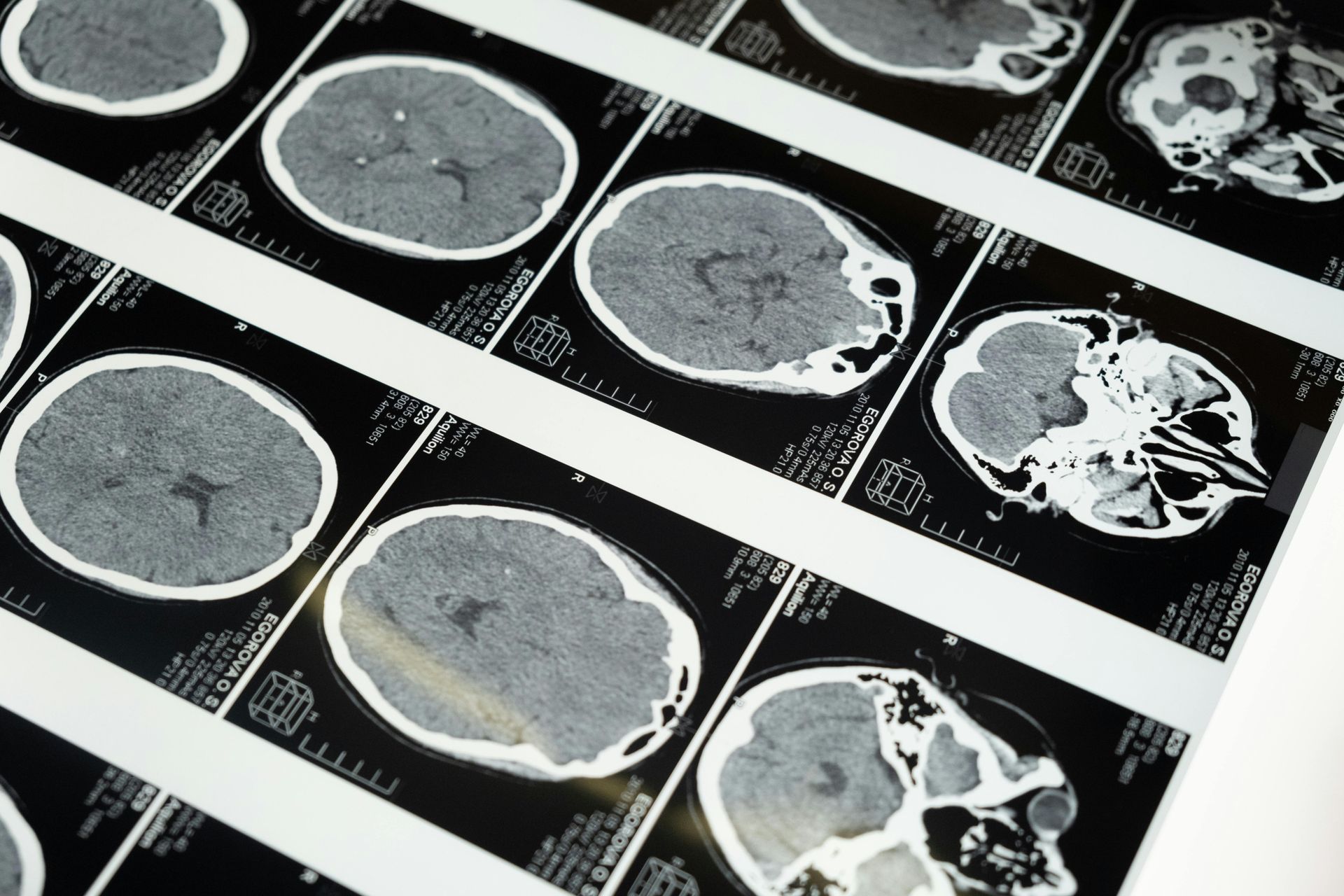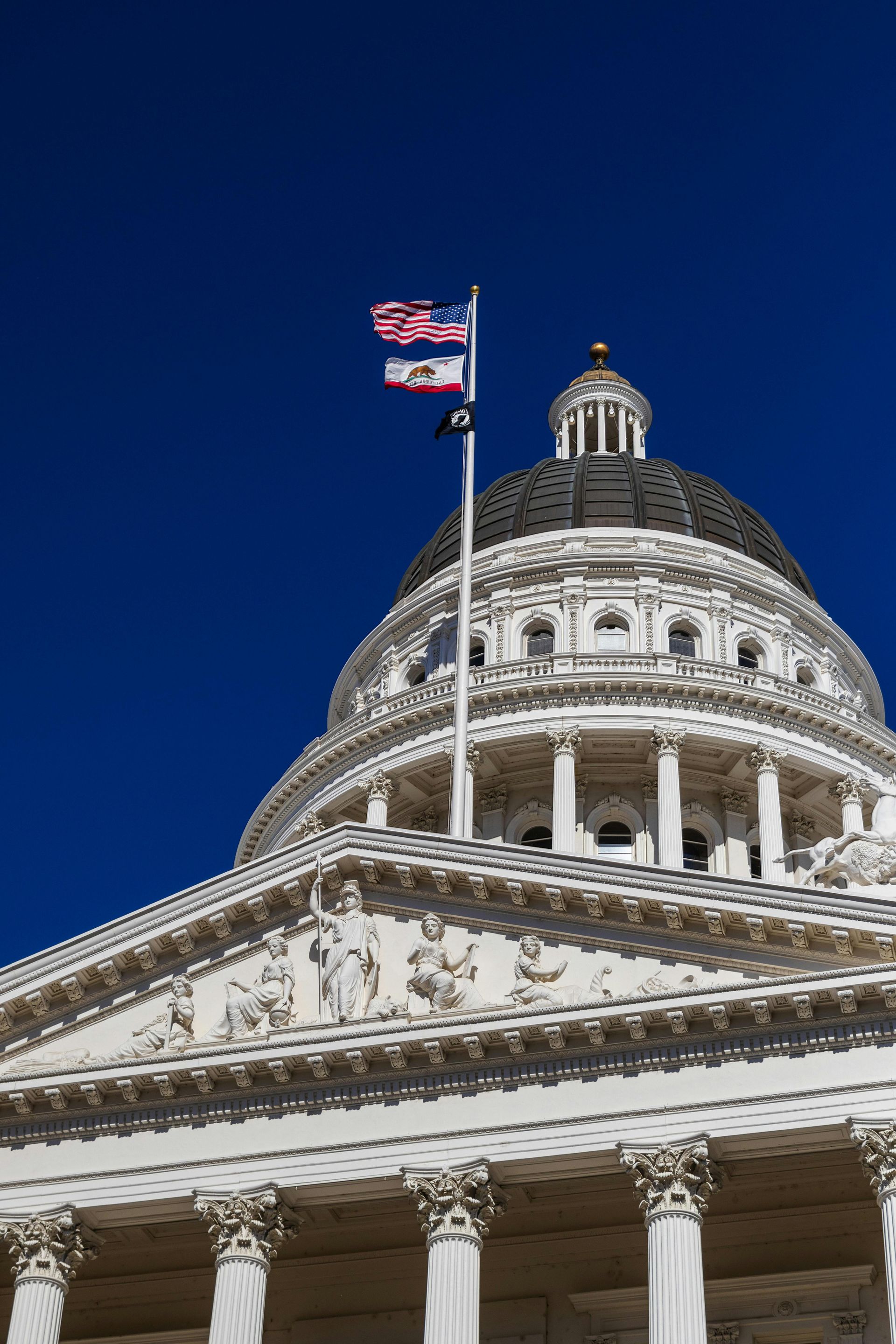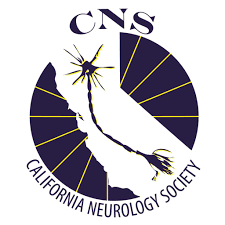CNS Legislative Committee MEETING MINUTES - Wednesday, May 7, 2025
Lobbying Efforts & The Importance of Building Relationships with Legislators
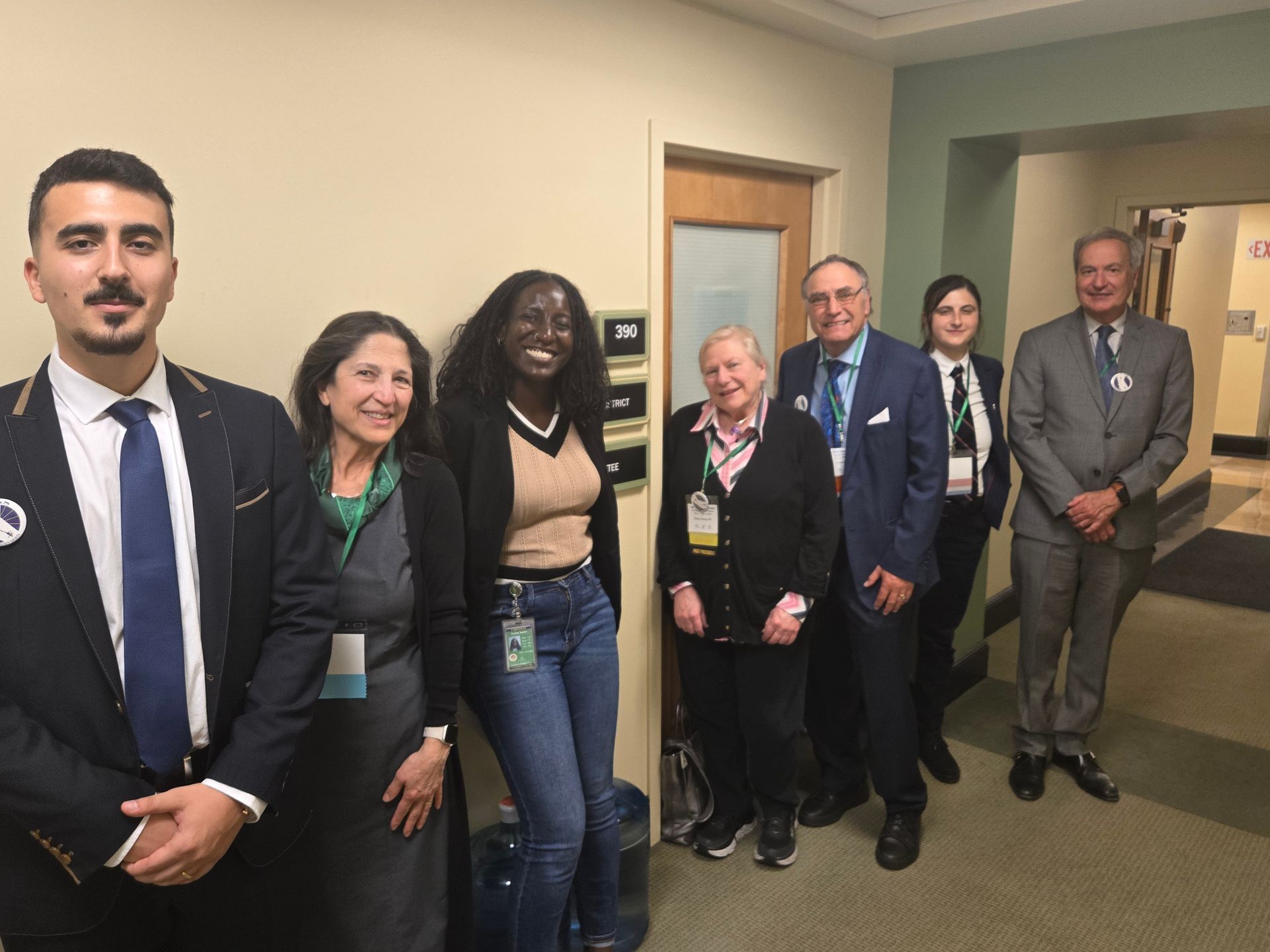
Quick Recap
The team discussed the need for better communication about upcoming meetings and the success of their recent capital visits. They also emphasized the importance of maintaining relationships with legislators and the need for a separate organizing committee to manage the process. The team also discussed various topics, including lobbying efforts, the importance of building relationships with legislators, the need for volunteers to establish contacts in local legislator offices, and the importance of maintaining relationships with legislators.
Next steps
- Selim to send out meeting agendas at least 5 days in advance, with a reminder on the day of the meeting.
- Selim to update the group on the status of SB 44 after reaching out to Mr. Thompson.
- Selim to draft letters of support for AB 350 and AB 489.
- Selim to create a list of 10-20 endorsed legislations to send out to members for prioritization.
- Jeff to provide Saleem with contact information for CMA staff involved in organizing their legislative advocacy day.
- Jeff to look into the status of CNS resolutions submitted to CMA and provide an update.
- Joanna to check her email for any updates on the resolutions submitted to CMA last year.
- All members to write down ideas for a survey to send to neurologists before the next meeting.
- Selim to work with Dorian to post the next meeting agenda a week in advance.
- Stella to forward Selim data on fluoride and mental retardation for the support letter on AB 350.
Summary
Improving Communication and Capital Visit Success
In the meeting, Stella, Selim, Steve, Steven, and Joanna discussed the need for better communication about upcoming meetings. They agreed to have a standing meeting on the third Wednesday of every month, with a week's notice and a reminder email on the day of the meeting. They also discussed the success of their recent capital visits, with Stella and Steve receiving positive feedback on their preparation and organization.
UC Davis Faculty Meeting Success
Stella and Steve discussed the successful UC Davis faculty meeting, where they received positive feedback and support from the attendees. They also praised the epilepsy group for their contributions and the professionalism displayed during the meeting. Steven suggested that future meetings should be independent events, with attendees arriving the night before for orientation, and then departing later that day. The team agreed with this idea and expressed their willingness to participate in such events.
Strengthening Lobbying Efforts Through Relationships
The team discussed the effectiveness of their lobbying efforts and the importance of building relationships with legislators. They agreed to focus on three key issues each year and to organize a one-day event annually to meet with legislators. The team also emphasized the need for volunteers to establish contacts in local legislator offices. Stella suggested involving their Uc. Davis partners in the process to train them and build stronger relationships. The team agreed to consistently implement this approach to strengthen their lobbying efforts.
Maintaining Relationships with Legislators
The team discussed the importance of maintaining relationships with legislators and the need for a separate organizing committee to manage the process. They agreed on the need for a regular meeting with legislators, possibly in their districts, to keep the connections fresh. The team also discussed the criteria for selecting attendees, emphasizing the need for commitment to the organization and attendance at future meetings. They agreed to reach out to their UC Davis colleagues to get their contact information and potentially involve them in the lobbying process.
Neurology Advocacy Budget and Accommodation Discussion
Steven proposed a separate entity for neurology advocacy, independent of educational meetings, with a budget to be carved out from existing funds. Stella agreed, suggesting unspent funds return to the program committee. Selim suggested further discussion on the agenda for the next meeting. Steven emphasized the need to identify the number of people to accompany them and their accommodation costs. Stella agreed on the budget and the need for informal training. Jeff suggested a cost-saving approach similar to the CMA's.
Sacramento Training and Legislative Advocacy
Jeff discussed the logistics of a training event in Sacramento, California, emphasizing the importance of neurology-specific issues and the potential for cost savings. He also highlighted the value of maintaining a relationship with the California Medical Association (CMA) for legislative advocacy. Stella and Steve agreed on the need for leadership in negotiating with CMA, particularly regarding neurology-related legislation. Selim was tasked with reaching out to a lobbyist for updates on the current language of a bill. The team agreed to move on to the next item, with the understanding that they could revisit the current topic later.
Fluoride Treatment Coverage Support
The committee discusses supporting a bill requiring health insurance plans to cover fluoride varnish treatments. Jeff emphasizes the importance of being clear and direct in their support, stating that fluoride does not cause mental retardation and that they strongly support public health measures like tooth fluoridation. He advises against using nuanced language or discussing technical details, suggesting instead to focus on the safety and effectiveness of fluoride treatments. Stella mentions data on the benefits of fluoridation in reducing tooth decay, but the group agrees to keep the message simple for political purposes.
Resolutions and AI Discussion
The team discussed various topics, including a letter of support for a group and a resolution related to artificial intelligence. They also discussed the status of resolutions submitted to CMA, with Stella mentioning three resolutions submitted last year, one of which was on gun legislation. The team agreed to check the status of these resolutions.
CMA Resolution Updates and Legislative Day
Jeff and Stella discussed the status of submitted resolutions at CMA. Jeff suggested that Saleem could reach out to CMA directly for updates. Stella asked if there was anyone at CMA Saleem could contact directly, and Jeff agreed to look into it. Jeff also mentioned that he would find out who is involved in setting up Legislative Day so Saleem could contact them. Stella suggested inviting Stuart Thompson, who had expressed interest in being more involved, to a Zoom meeting with doctors. Jeff agreed that this could be a positive development.
CMA Engagement and Collaboration Strategy
Jeff emphasized the importance of increasing engagement with the Canadian Medical Association (CMA) to leverage their expertise and amplify their voice. He clarified that as a component medical society, they already have a level of membership and engagement with the CMA. Stella expressed her desire to work closely with the CMA on neurology issues, while Steve suggested a collaborative approach rather than an adversarial one. The team agreed on the need to focus on overlapping interests and not antagonize each other over non-overlapping areas.
Neurology Community Prioritization and Advocacy
The team discussed the need to focus on the neurology community's priorities, with a particular emphasis on prior authorization. They considered sending out a survey to gather input from neurologists on what they want to focus on. The team also discussed the importance of patient advocacy and the need to understand what patients want from their care. They considered involving other neurology patient groups in future conferences and using their website to gather opinions from members. The team also discussed the need to build up the policy on duty of care and the implications of practicing medicine without a license.
Healthcare System Transparency and Urban Planning
The meeting focused on discussing the issues in the healthcare system, particularly the high costs of medical care and the need for transparency in the use of Medicare tax dollars. The participants agreed that the current system is driven by business interests rather than a duty of care for patients. They discussed the need for a shift in focus towards the physician-patient relationship and the importance of doctors being in charge of healthcare decisions. The group also considered the impact of urban planning on public health and the need for more walkable communities. The conversation ended with plans to create a survey to gather more ideas on these issues.
